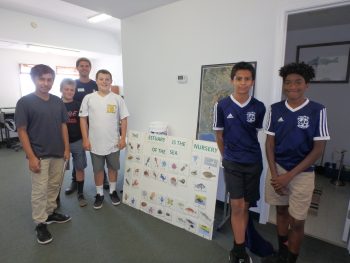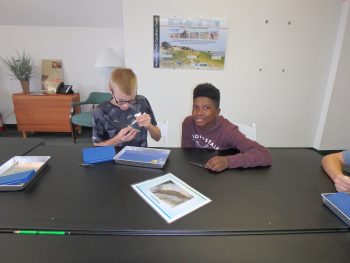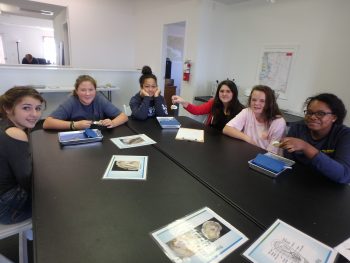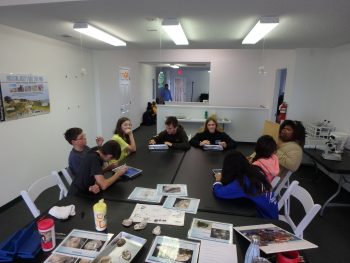 More than 200 Manteo Middle School students stopped by the North Carolina Coastal Federation’s Wanchese office this past week for lessons on water quality, oyster restoration and marine debris.
More than 200 Manteo Middle School students stopped by the North Carolina Coastal Federation’s Wanchese office this past week for lessons on water quality, oyster restoration and marine debris.
Three seventh-grade classes and one eight-grade class taught by Mary Ann Hodges and four seventh-grade classes taught by Dawn Tillett came by to meet staff and learn about the federation’s work.
Michelle Clower, Ann Daisey, Michael Flynn, Sara Hallas and Reilly Kelly all led different lessons for the classes over the course of the two days.
“Each leader was truly an expert in the area and presented well,” Hodges said.
The students are currently studying plant and animal cell biology in their science classes. During their lessons at the federation, they learned about the many animals that depend on estuaries. Most of these organisms start off as microscopic larvae, and students spent time identifying several different kinds.
In another lesson, they saw live oysters at work filtering water. An adult oyster can filter up to 50 gallons of water per day. They then dissected an oyster, exploring its anatomy, which helped them get a better understanding about how oysters protect water quality.
Students also spent time discussing marine debris and how long many common items take decompose. A plastic water bottle, for example, takes hundreds of years to decompose.
Throughout the lessons, students were encouraged to think of ways to protect water quality.
Earlier in the year, Hallas and Kelly led an in-classroom water quality lesson with the classes with an enviroscape model. At this lesson, they got to see firsthand some low impact development measures that help reduce stormwater runoff, including permeable pavement, rain gardens and rain barrels.
After the in-class lessons, students from Tillett’s class sent in thank you letters to the staff.
“Thank you for teaching us the importance of reducing pollution,” one student wrote. “It has really opened my eyes to be more productive of our Earth. I didn’t know how much pollution and the water cycle are tied together.”
Several students said they’d be sure to pick up litter when they saw it. Others wrote about how much they learned about how marshes and rain gardens help reduce the effects of pollution.
Check out some photos below from the students’ oyster dissection.



